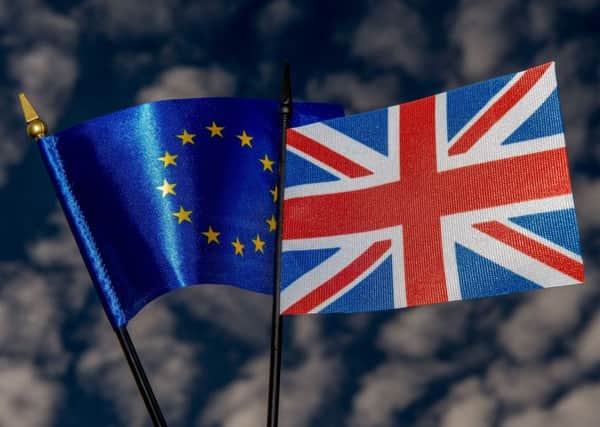Leader: Keep cool and carry on, we need to think this through


We know for sure that there will be consequences, but at the moment we have no way of knowing exactly what all the consequences will be. The vote on Thursday on the UK’s continued membership of the EU has revealed a deeply divided Britain. The result will have huge ramifications for Scotland, and the United Kingdom, and Europe and knock on to the rest of the world.
Given the way that Scotland voted there can be little argument that this shows a massive difference in how Europe is viewed by the different sides of the Border. It can be no wonder that First Minister Nicola Sturgeon says it is “democratically unacceptable” and that a second Scottish independence referendum is now highly likely and is on the table. It was, after all, in the SNP’s Holyrood manifesto.
Advertisement
Hide AdAdvertisement
Hide AdThe biggest consideration for Ms Sturgeon will be demonstrating there is public demand for a referendum and if there is, does that mean she will go on to win it? There has to be a doubt about how many people who voted No in the last independence referendum would put European membership above Union membership and change their vote in a second referendum. And it is worth pointing out that 38 per cent of Scots wanted to leave the EU, and they are getting what they wanted so presumably will not be seeking a reversal of that decision.
But using the EU result as the reason for a second referendum has some big practical difficulties. If it is all about giving the Scots their democratically expressed wish to stay in Europe, how can that be achieved? A close examination of Ms Sturgeon’s words reveal she is aware of the potential pitfalls. She said: “I intend to take all possible steps and explore all possible options to give effect to how people in Scotland voted – in other words to secure our continuing place in the EU, and in the single market in particular.”
She went on: “It is important that we take time to consider all steps and have the discussions, not least to assess the response of the European Union to the vote that Scotland expressed yesterday.”
Given that at the last referendum the EU made it known there would be no automatic place in the EU for an independent Scotland, clearly she is hoping for change there. But that might not be a forlorn hope. There is already evidence of the tensions between the new UK regime and the European leaders. They have ripped up the deal agreed with David Cameron in February to protect London’s financial markets, curb immigration and opt out of closer union. Perhaps those EU leaders are now wishing they had given Mr Cameron a little more in the way of reforms to take home to his rebellious electorate.
Boris Johnson wants time taken before the Brexit is triggered, the EU leaders want it to begin immediately. Mr Johnson wants to change immigration immediately regardless of treaties, the EU leaders say all treaties must be adhered to until UK leaves the EU in two years time. The tone of the relationship is already being set, and it is looking acrimonious.
Mr Cameron has said he will go, and the fact is that he had to. His hubris has brought us to this spectacular rift, when there was no need for us to be here at all. A cannier politician, or at least one that was not willing to take massive risks for his own personal legacy, would have realised the dangers, not courted them. His place in history will be very much different from how he envisaged it.
The division between Scotland and England is not the only one to be forced open by his reckless ambition. England is largely united against its capital as well as its political elite. Those splits will be difficult to heal, particularly in straitened economic times. And ironically, given that Mr Cameron’s initial motivation in this was to unite his party, there is a deep rift in the Tories.
So who will take over from Mr Cameron and pilot the country through these complex and difficult changes? Both Michael Gove and Mr Johnson have been the faces of the Leave campaign but might they be seen as too partisan for the reconciliation that is to come? Has Theresa May distanced herself enough to step in as a neutral candidate, or has her stance been seen as too calculating? If indeed Mr Johnson does succeed Mr Cameron as prime minister, that must be worth at least another couple of percentage points to independence campaigners during a referendum campaign.
Advertisement
Hide AdAdvertisement
Hide AdAnd of course Jeremy Corbyn’s leadership of Labour is also under fire, although it is hard to remember a time now when it has not been. His heart was never in the Remain campaign and that was obvious.
There has been much talk about the EU referendum result being about popular dissatisfaction with the political establishment and not so much about Europe, and there seems to be evidence for that view. But in many ways the motivations do not matter. The vote has been taken, the result has been given.
But now is a time for cool heads and consideration. There is much to be decided: it is complicated but of huge import to the society we are about to come. We are on the brink of momentous change, so everybody should take the time to open up the debates, and think actions through.
There is here a great opportunity to change society to better reflect people’s altered desires and needs and aspirations, to heal the divides, so let’s get it right.